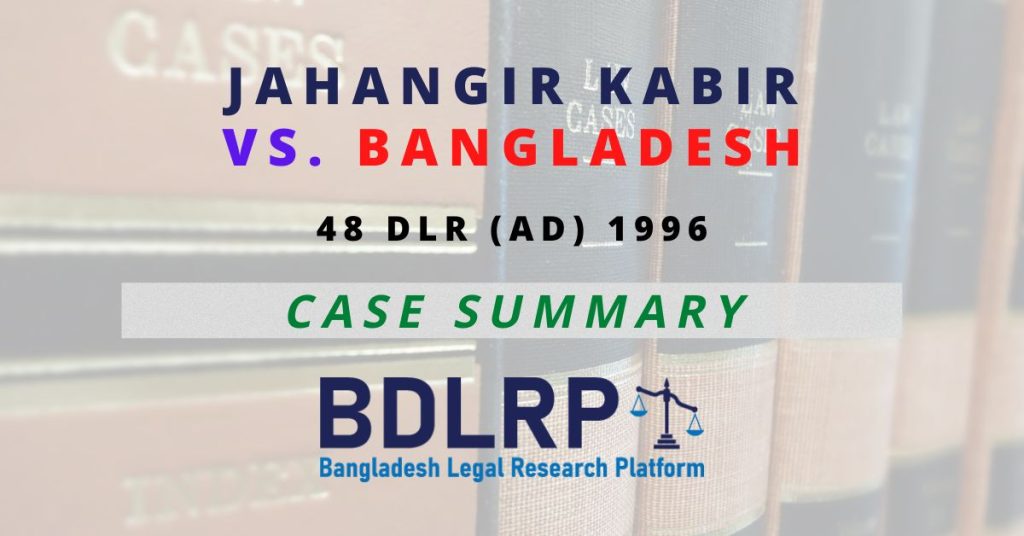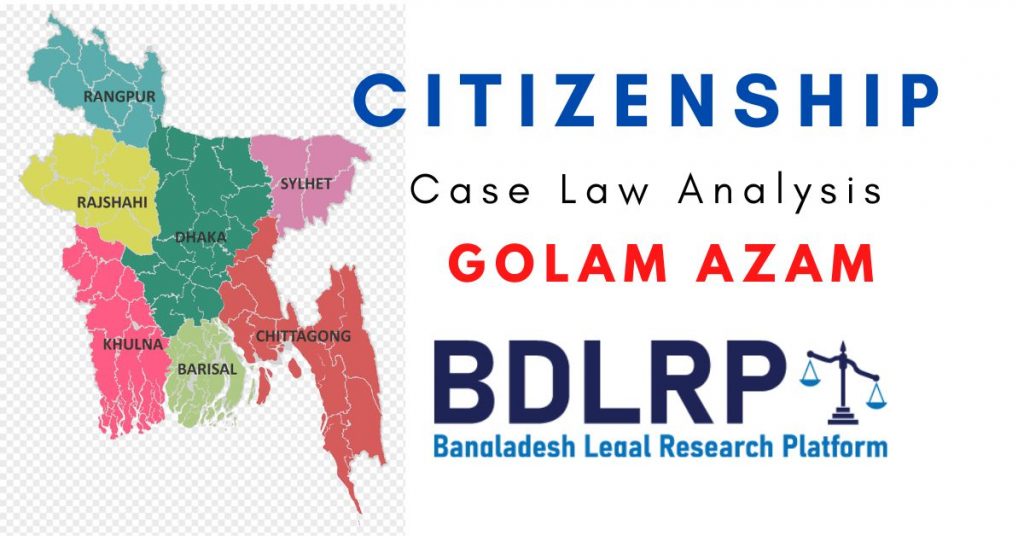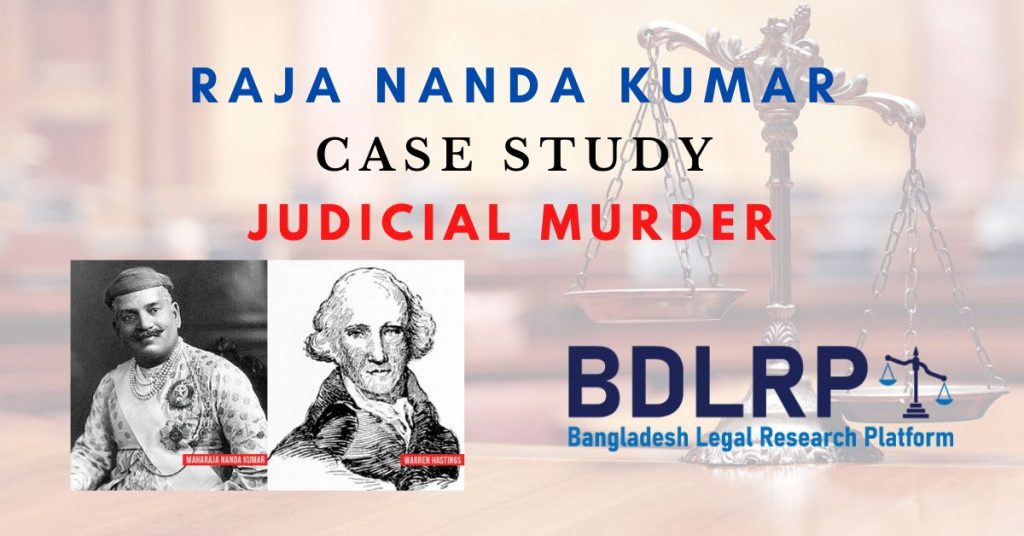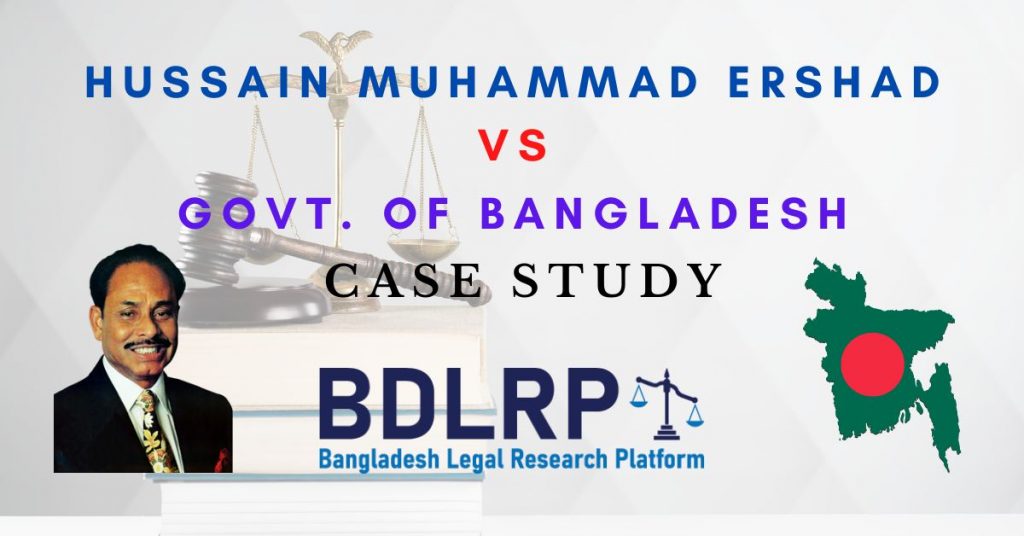Bench:
ATM Afzal CJ; Mustafa Kamal J; Md. Abdur Rouf J; and Md. Ismailuddin Sarker J.
Advocates Appeared:
Md. Abdur Rob Chowdhury, Senior Advocate, instructed by Md. Aftab Hossain, Advocate-on- Record
– For the Appellant.
B Hossain, Deputy Attorney General, instructed by Sharifuddin Chaklader, Advocate-on-Record
– For the Respondents.
Date of Judgment: August 28th, 1995.
Facts:
The appellant was suspended while working as a Director of Fire Service, Civil Defense, and Rescue Service under Rule 11(1) of the Government Servants (Discipline and Appeal) Rules, 1985 and was later charged with corruption and misconduct. The appellant reportedly went into service falsely claiming to have passed the BA exam. Without examining any witnesses, a Joint Secretary of the Ministry of Home Affairs conducted an investigation and presented a report stating that the charges against the appellant were substantiated. The Public Service Commission approved the proposed punishment without reviewing relevant documents. Following that, an order of compulsory retirement was issued.
When the issue was referred to the Administrative Appellate Tribunal, it found that the order to be illegal and void. However, the appeal was dismissed on the ground of ‘estoppel’ under section 115 of the Evidence Act, as the appellant sought for LPR and received all pecuniary benefits following the order’s issuance. Having been aggrieved, the appellant preferred leave to appeal to the Appellate Division.
Issues:
- Whether acceptance of pensionary benefits amount to waiver of right.
- Whether the principle of estoppel under Section 115 of the Evidence Act, 1872 applies in the present case.
Arguments of the Appellant:
The learned Counsel contended that the appellant, as a government servant, did not opt for voluntary retirement and was instead forced to retire as a punishment. It was argued that the principle of estoppel is not applicable in this case since the appellant had to accept financial benefits from the government under compelling circumstances.
Arguments of the Respondent:
The learned deputy attorney general submitted that because the appellant took the retirement benefits, he relinquished his right, and thus his case is hit by section 115 of the Evidence Act.
Decision:
The appeal was allowed with costs, and the Court was of the opinion that acceptance of pensionary benefits in the facts and circumstances of the present case could not be construed as estoppel under section 115 of the Evidence Act.
Reasoning:
The court made a reference to the case of Bangladesh Parjatan Corporation vs. Mofizur Rahman 46 DLR (AD) 46. There, the respondent submitted a prayer for retirement from service, which was granted, relieving him from service with full financial benefits. However, the order was challenged a year later, and it was held that the respondent had acquiesced in the order of retirement and was therefore barred from opposing it. The case before the Division is just the opposite.
Comments:
To establish estoppel, it is necessary to prove that the party alleged to have waived his right acted in such a way as to mislead the opposing party into believing that such rights would not be enforced or would be held in suspense for a specified period of time.1 A mere gratuitous indulgence shown by a short-term lapse in not enforcing one’s legal rights cannot give rise to the inference that the rights have been abandoned for all times.2 In the case of Hasina Mawla vs. Bangladesh Parjatan Corporation 45 DLR 112, the Corporation failed to establish on the materials on record that the appellant willingly retired owing to ill health, and after receiving gratuity benefits, she filed a representation against the alleged retirement. As such, the principle of estoppel was not applicable in her case. If the appellant induced the respondent to permit him to retire and once, he receives pecuniary benefits, then the former cannot claim that the later lacked the authority to relieve him from service.3 There was no such substance in the present case. Thus, it didn’t attract the principle of estoppel because the appellant didn’t go for voluntary retirement and waive his right by likewise conduct.
1 As per Hamoodur Rahman J in Ocean Industries Ltd. vs. Industrial Development Bank 18 DLR (SC) 354
2 Ibid.
3 ATM Afzal J referring to the decisions of the Judicial Committee in the case of Sarat Chunder Dy. vs. Gopal Chunder Laha, Indian Appeals (1891-92) Vol. XIX, page 203 and the case of Ambur Nair vs. Kelu Nair, AIR 1933 (PC) 167
Author: Shilajit Kumar Roy
Law Discipline,
Khulna University.





Comments are closed.